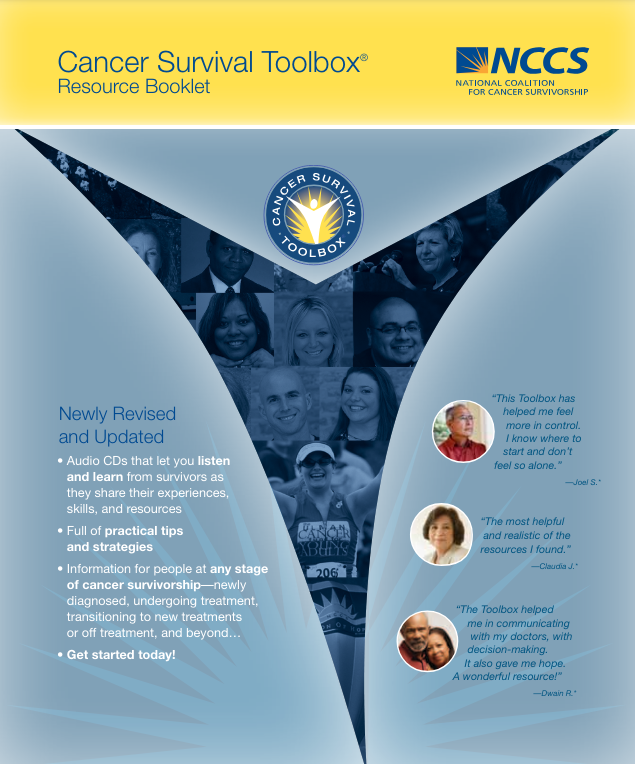Living With Cancer
When considering treatment options, so many questions need to be answered. Finding the answers you need can be confusing and time consuming.
We are here to help you, every step of the way.
The Cancer Survival Tool Box

The Cancer Survival Toolbox is a free, self-learning audio program that has been developed by leading cancer organizations to help people develop important skills to better meet and understand the challenges of their illness. The program contains the information to navigate a diagnosis, and special topics on key issues faced by people with cancer.
On this site, you can read or listen to the toolbox in English, Spanish, or Chinese, or download the files to read or listen later. You can order a free CD version of the program by filling out an online form or calling 877.NCCS.YES.
SURVIVORSHIP
We all celebrate when one is through with their cancer treatment. Today there are millions of people who are cancer survivors. Most survivors felt great support during their treatment from family and professionals, however after treatment returning to a new Normal life requires adjustments. There can be new problems and a new way of looking at life and the world around them.
The new Normal includes physical and emotional changes and they too must be addressed. Issues like coping with fear of recurrence, setting up a follow-up plan, changes both physical and emotional occur.
Remember you are not alone. Here are some great resources:
Get the facts
about your cancer diagnosis
Try to obtain as much basic, useful information as possible about your cancer diagnosis. Consider bringing a family member or friend with you to your first few doctor appointments. Write down your questions and concerns beforehand and bring them with you.
Some questions you might consider asking your doctor during your appointment are:
Feel prepared for every appointment
Carrying the right information can empower you during your cancer care journey. Use these tools to help organize this information so you can be an active participant in your cancer care.
Keep them handy for use at home and bring them along to your doctor visits and other medical appointments.


